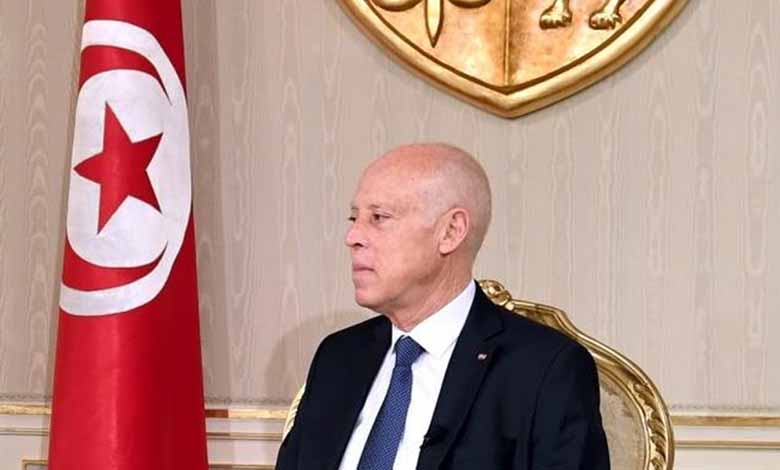Saied insists on rejecting the intervention of international forces supporting the Muslim Brotherhood in the Tunisian affair… Details

In a new rejection of foreign interference and international pressures, the Tunisian Ministry of Foreign Affairs affirmed its total rejection of all external interference in its internal affairs and in the work of the judicial institution, following the tweet published by the Department of Near Eastern Affairs at the U.S. Department of State.
“Tunisia is keen to abide by this principle in its relations with all friendly countries,” the ministry said in a statement on Wednesday, adding that it is ready to continue to strengthen cooperation relations with the United States of America within the framework of mutual respect.
In a statement, the United States expressed concern about the “arrest and continued detention of political figures, saying that it joins the voices of Tunisians calling for a fair and transparent judicial process for all.”
A month ago, the European Parliament called on the Tunisian authorities to “immediately release” the journalist, the director of the private radio station Noureddine Bautar, and “other detained persons,” condemning the “inclinations” of President Kais Saied and considering it the strongest speech by the European legislature against the current political track, while domestic rejection of such interference is mounting.
The European Parliament adopted a resolution last Thursday, by a large majority, expressing “deep concern” over what it called a “coup against democracy” and calling on members of the European Parliament to “put an end to the ongoing repression against civil society organizations.”
“EU foreign policy chief Josep Borrell urged member states to publicly condemn the serious deterioration of the human rights situation in Tunisia, and called for the suspension of EU support programs for the justice and interior ministries.”
On February 14, Tunisian President Kais Saied said in a video released by the presidency, “They are conspiring against the security of the state, planning and preparing to assassinate the head of state, and they are under the protection of security,” adding that “this is about the life of the state and the future of the people, and they are talking about actions.”
He then rejected international criticism of the arrests, in response to what he described as blatant foreign interference in Tunisia’s affairs, stressing that the coming facts about the arrests would be shameful.
During his meeting with Prime Minister Najla Bouden, according to a video released by the Tunisian presidency via its official Facebook account, Saied said: “We did not send telegrams and we will not make statements expressing our concern about the human rights situation in a number of capitals from which these statements are issued.”
The Tunisian president stressed that Tunisian sovereignty is “above all else,” and that his country came up with the idea of freedom before its critics, he continued, “Let them look at their history before they look at our history, and let them look at their reality before they talk about the situation in Tunisia.”
He also stressed that Tunisia “is not under colonialism or mandate, but an independent and sovereign state, and we know what we are doing with full respect for the law.”
“Today, they are talking about freedom of speech. Has one newspaper been banned? Has one program been banned? Have any journalists been prosecuted for work related to journalism?,” describing Western attitudes as “lies.”












